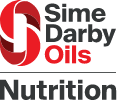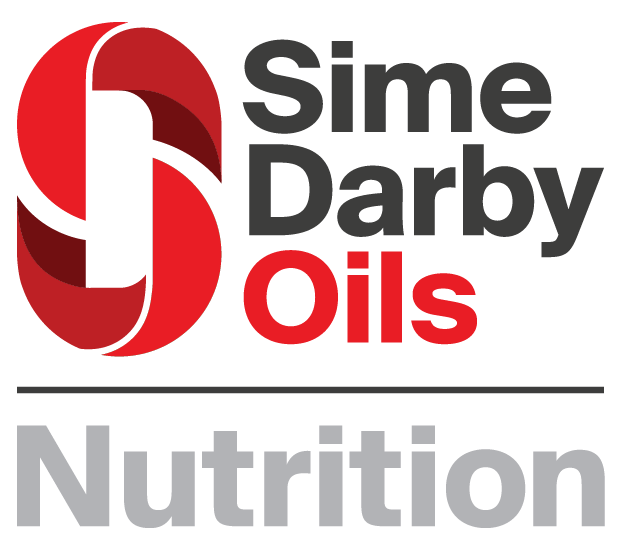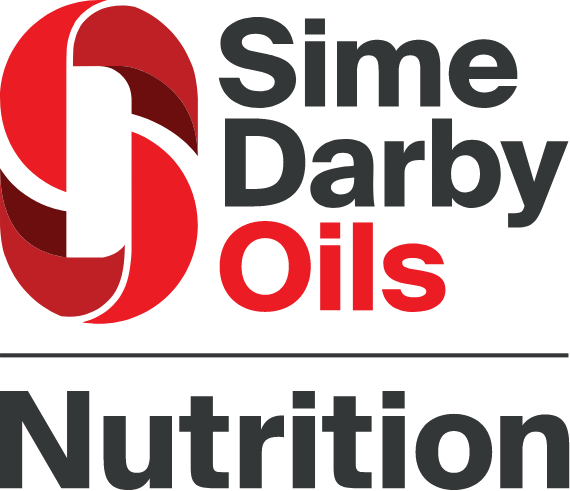
Studies on
Tocotrienols
One of the most studied Phytonutrient by scientists – Tocotrienols have been proven to be mother nature’s gift that keeps on giving. It’s antioxidant and anti-inflammatory property has amazing benefits for overall health!
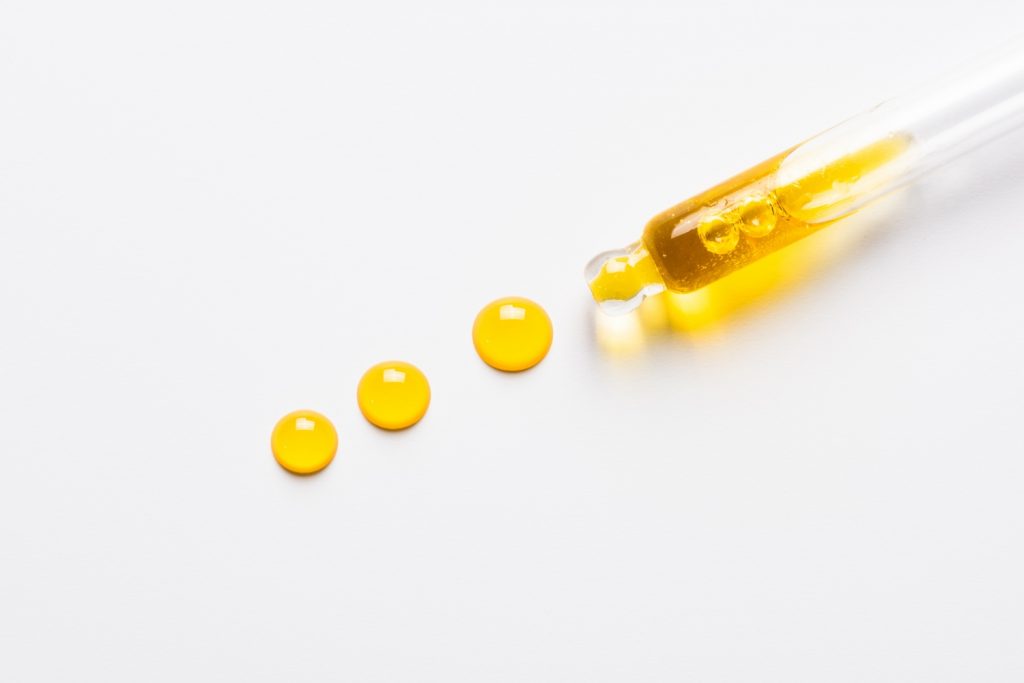
Tocopherols
four saturated anologues
called tocopherols
Tocotrienols
four unsaturated anologues
referred to as tocotrienols
Discovering
tocotrienols
Vitamin E refers to eight different isoforms that belong to two categories. Tocotrienols differ from the tocopherols in that they contain three double bonds in the side chain. Each of them has four stereoisomers, respectively, namely, α-, β-, γ-, and δ-tocopherols or tocotrienols.
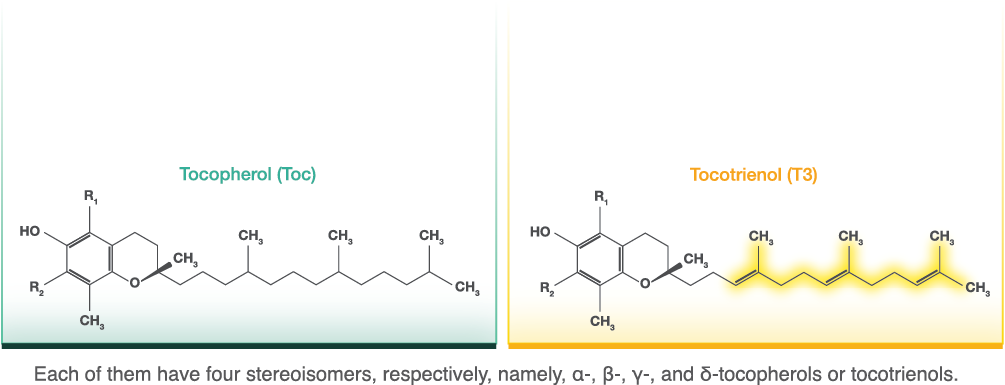
TocotrienolS
superiority

Liver Protection
66% of subjects on tocotrienols improved their non-alcoholic fatty liver disease (NAFLD) within a year while 50% of them had complete remission of their nonalcoholic fatty liver disease (NAFLD). Tocotrienols are able to reverse fatty liver effects.

Cholesterol Lowering
Mixed tocotrienols reduced LDL cholesterol by 17.2% in hypercholesterolemic patients. Improving cardiovascular health and protection.

Neuroprotection
The brain contains high content of polyunsaturated fatty acids (PUFAs), making it very susceptible to free radical-mediated oxidative stress that negatively affects brain health. Tocotrienol’s antioxidant ability is crucial in minimizing oxidative stress and support healthy brain function
Preventing Non-Alcoholic
Fatty Liver Disease (NAFLD)
1 in 5 Malaysians are found to have Non-Alcoholic Fatty Liver Disease (NAFLD) which is excess fat build up in the liver, not due to alcohol. It is often due to an unhealthy lifestyle.
Most people don’t even realise when they develop the first stage of NAFLD. Early detection and treatment with NATRIEO is able to reverse the condition! Delay in treatment however, may lead to liver inflammation, scarring, failure or even cancer.
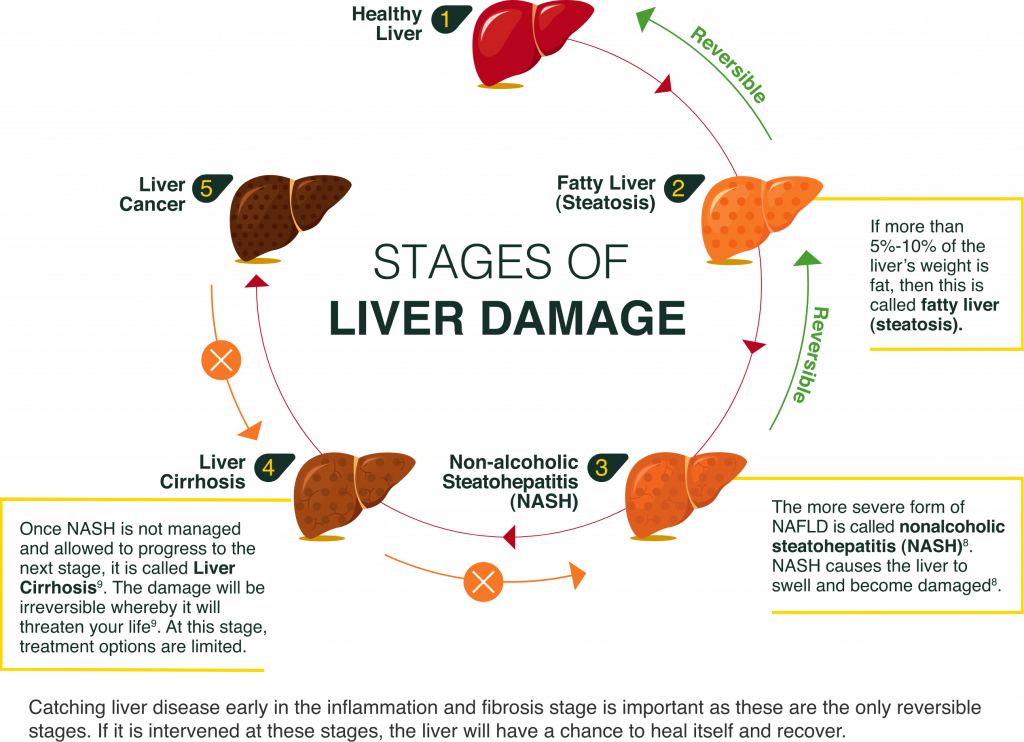
Tocotrienols &
Liver Protection
Over 3 months of intervention, there is a reduction of 5% in the ALT readings of the tocotrienol-treated group, compared to an increase of 6% in the lifestyle-modification group.
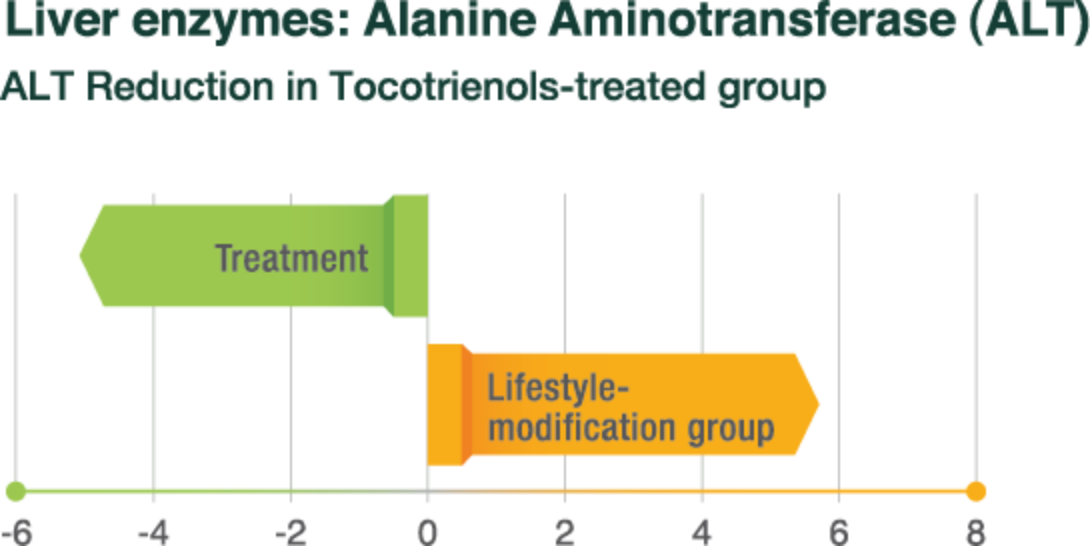
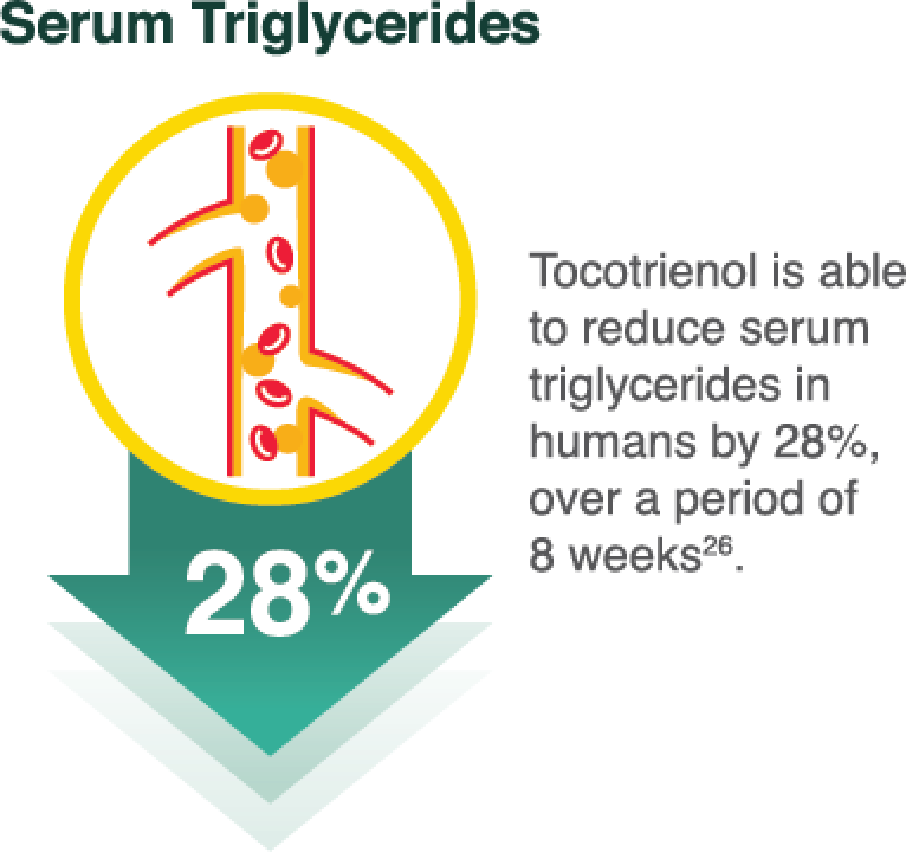
Liver Stiffness Measurement via Fibroscan Analysis
Of the patients who showed significant reduction in liver stiffness measurement within 3 months, 79% were from the tocotrienol-treated group compared to only 21% from the lifestyle modification only group.
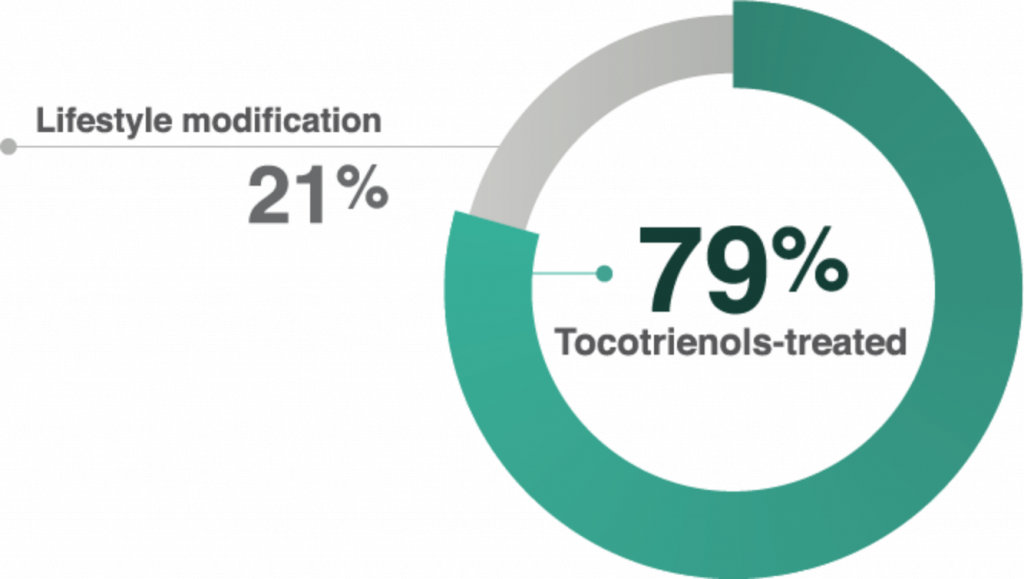
Hepatic Echogenic Response via Ultrasound
Ultrasound analysis of hypercholesterolemic NAFLD patients indicated that 66% of the tocotrienols-treated group showed improvement in their hepatic echogenic response within 1 year. Of the 66%, 75% normalized their hepatic echogenic response.
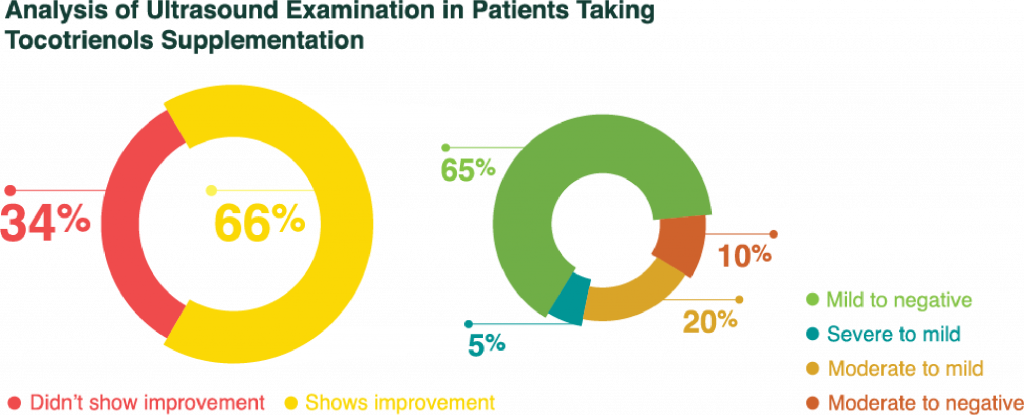
Safety of
Tocotrienols
1
Palm tocotrienols-rich fraction (TRF) has been granted the GRAS (Generally Recognized as Safe) status by the US FDA in 2010
2
The European Food Safety Authority in 2008 published a no-observed-adversed-effect level (NOAEL) of tocotrienol (120 mg/kg/day for males and 130 mg/kg/day for females) in a subchronic study in rats using purified vitamin E mixtures from palm oil.
3
A clinical investigation of 88 patients with white matter lesion were given 400mg. day of mixed tocotrienols for 2 years reported no adverse event relating to tocotrienols consumption.

Research papers
References
- Title: THE EFFECT OF VITAMIN E (MIXED TOCOTRIENOL) ON THE LIVER STIFFNESS MEASUREMENT MEASURED BY TRANSIENT ELASTOGRAPHY (FIBROSCAN) AMONG NAFLD PATIENTS
Reference: Thendiono, E. (2018). IDDF2018-ABS-0025 The effect of vitamin e (mixed tocotrienol) on the liver stiffness measurement measured by transient elastography (FIBROSCAN) among nafld patients. Clinical Hepatology, 1–15. https://doi.org/10.1136/gutjnl-2018-iddfabstracts.189 - Title: TOCOTRIENOLS FOR NORMALISATION OF HEPATIC ECHOGENIC RESPONSE IN NONALCOHOLIC FATTY LIVER: A RANDOMISED PLACEBO-CONTROLLED CLINICAL TRIAL
Reference: Magosso, E., Ansari, M. A., Gopalan, Y., Shuaib, I. L., Wong, J.-W., Khan, N. A. K., Abu Bakar, M. R., Ng, B.-H., & Yuen, K.-H. (2013). Tocotrienols for normalisation of hepatic echogenic response in nonalcoholic fatty liver: a randomised placebo-controlled clinical trial. Nutrition Journal, 12(1), 1–7. https://doi.org/10.1186/1475-2891-12-166 - Title: EFFECTS OF DELTA-TOCOTRIENOL SUPPLEMENTATION ON LIVER ENZYMES, INFLAMMATION, OXIDATIVE STRESS AND HEPATIC STEATOSIS IN PATIENTS WITH NONALCOHOLIC FATTY LIVER DISEASE
Reference: Pervez, M. A., Khan, D. A., Ijaz, A., & Khan, S. (2018). Effects of Delta-tocotrienol Supplementation on Liver Enzymes, Inflammation, Oxidative stress and Hepatic Steatosis in Patients with Nonalcoholic Fatty Liver Disease. The Turkish Journal of Gastroenterology, 29(2), 170–176. https://doi.org/10.5152/tjg.2018.17297 - Title: ORAL TOCOTRIENOLS ARE TRANSPORTED TO HUMAN TISSUES AND DELAY THE PROGRESSION OF THE MODEL FOR END-STAGE LIVER DISEASE SCORE IN PATIENTS
Reference: Patel, V., Rink, C., Gordillo, G. M., Khanna, S., Gnyawali, U., Roy, S., Shneker, B., Ganesh, K., Phillips, G., More, J. L., Sarkar, A., Kirkpatrick, R., Elkhammas, E. A., Klatte, E., Miller, M., Firstenberg, M. S., Chiocca, E. A., Nesaretnam, K., & Sen, C. K. (2012). Oral Tocotrienols Are Transported to Human Tissues and Delay the Progression of the Model for End-Stage Liver Disease Score in Patients. The Journal of Nutrition, 142(3), 513–519. https://doi.org/10.3945/jn.111.151902
